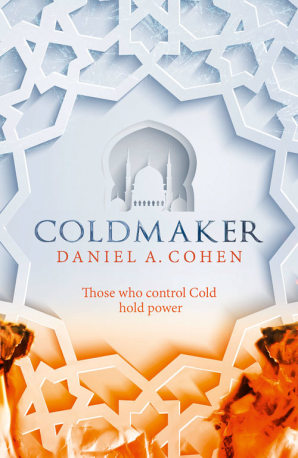
You’re smiling your way through carnival tents, neon tufts of cotton candy sticking to your palms, and you stumble across a game that looks like a thermometer for giant robots. A carnival worker beckons you over with siren chatter and promises of stuffed cartoon characters, and you step up to the platform, grab the padded hammer, and narrow your eyes to gauge the various levels of victory. Easy, you think. You wrap your hands around the hilt, confidence burning through young arms, and you strike down with your underbelly of flame in the hopes of making that top bell sing.
Now you might strike that bell on the first attempt and take home the oversized Scooby-Doo that can barely fit in the back seat. Who’s to say? It might also take hundreds of swings.
And those swings never get any easier, the pounding out of endless form rejection letters, each one a paper cut on your soul. Your hands blister. You get dehydrated. Dreams of riding the Tilt-O-Whirl are slashed. You don’t even know if you can afford to play the game anymore and have to mine your pockets deep, scrambling for the rusty coins, the load-bearing coins, the coins long forgotten or never known at all.
Such was the journey to writing my first book.
I was eighteen at the time and I can no longer look back on those pages without a heavy cringe or quite possibly a gag.
Now that I’m on novel number six, sporting a multi-book publication deal with HarperCollins for my COLDMAKER series, I can confidently say I’ve discovered a few things about the proverbial hammer game. There are other bells hovering way above the Scooby-Doo bell, each one more difficult to reach than the last. These are the extremely rewarding, madness-inducing bells that you probably won’t notice right away.

Some of these bells include:
- Editing your novel over and over until you get it right.
- Finding an agent that will not only represent you, but believes in you.
- Getting someone to give you real money for your novel.
- Marketing your novel against every other novel in existence.
- Being able to kill your darlings without remorse (this bell still eludes me).
- Being okay with getting your first one-star review (this bell strikes back).
- Not only writing a book, but writing a good book.
*Bang* *Clack* *Swoosh* *Bleed*
Once I was able to discern these bells, I couldn’t live without knowing what they sounded like. I tried to leverage a little higher with each book I wrote, and I have about three hundred rejections from publishing companies, agents, and short story magazines alike—I still get these same rejections— all telling me to keep swinging.
For nearly a decade I lived in relative squalor, paycheck to paycheck, taking every part-time job I could find just so I had the space and mental energy to keep writing. Food service. Customer Service. Sales. Retail. Playing my saxophone on the street. I served food at a retirement home for ten dollars an hour with no tips. I ruined good relationships. I wrote. I pushed good friends away. I wrote. I ended up in a psych ward on suicide watch. I wrote. All these things for ever-stretching, yet singular goals. Hell, I remember one day I was scrubbing toilets at Starbucks, thinking to myself, am I really destined to spend life in sacrifice and still die in silence?
But here’s the real secret, the one the carnival workers won’t tell you:
You can keep the hammer. And you always have another coin. And you get to take as many swings as you need.
COLDMAKER took four years to extract, and afterwards I was so exhausted, so emotionally emptied, that I nearly gave up. My friends and family didn’t get it, as that particular scar tissue is invisible to anyone unfamiliar with the scalpel that is writing. Still I queried a hundred agents exactly and got dozens upon dozens of rejections. After finding an agent around rejection ninety—and mind you, she’s spectacular—we took a year getting the story ready for submission. Half a dozen new drafts later and she still didn’t think it was ready.
Finally too tired to go on, I let the hammer fall.
“Send it out,” I said. “If no one likes it, at least I gave it my all.”
She emails me one day:
“Don’t fall out of your seat, but we have HarperCollins interested.”
*DING!*
I found out the hard way that signing the Harper deal didn’t mean I got to stop and rest. I was asked to do two complete re-writes and a whole bunch of drafts, and I ended up putting in more effort than I ever have before; but hearing those bells turned my past into a prologue and gave my future a song.
So here’s my advice, take it if you’d like:
The game is rigged. But it’s rigged in your favor. Everyone loses at some point. But anyone can win.
Having spent most of his life trapped in the frozen tundra of upstate New York, Daniel decided to dream himself somewhere new. Fantasy worlds became his refuge, giving him a place to escape from the cold and mundane. His first novel The Ancillary’s Mark was published when Daniel was only eighteen, receiving critical acclaim. His second book Masters of the Veil was published by Spencer Hill Press. Daniel is also a semi-professional saxophonist in Austin, Texas, spending his days in front of the page and his nights in front of crowds. Sometimes the crowds cheer, and Daniel often wishes the page would do the same. Follow Daniel on Twitter here.
Comments